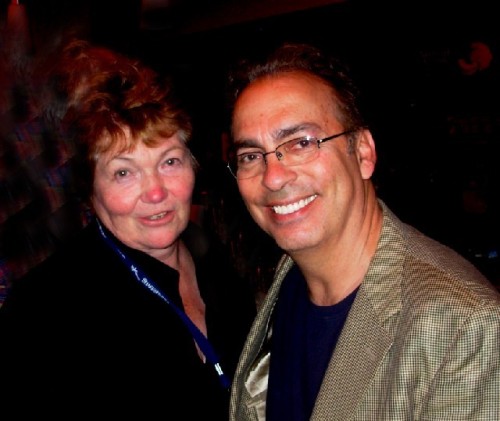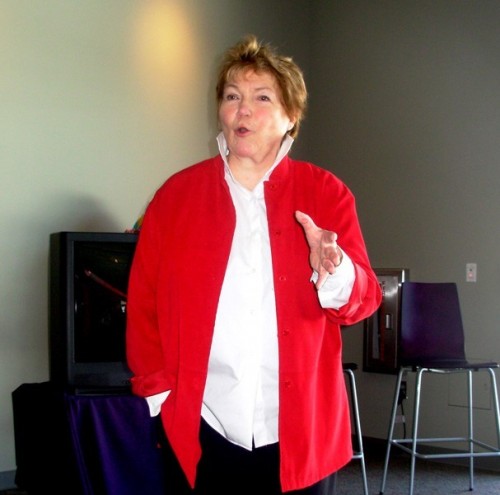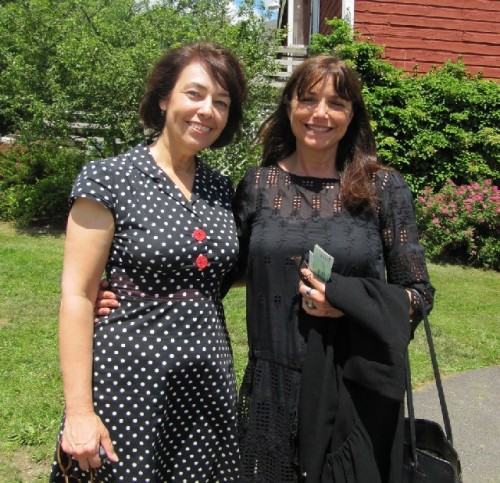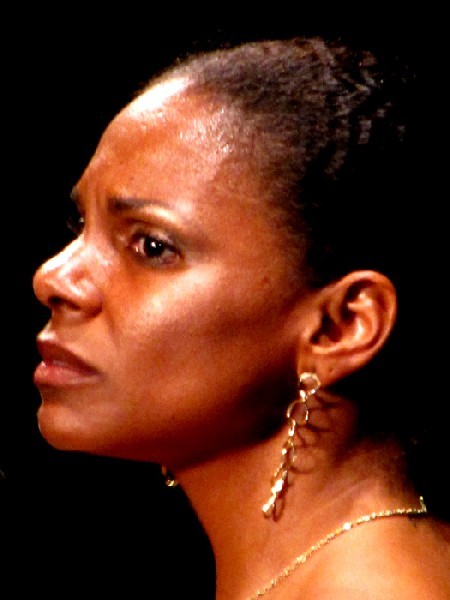Critical Condition Arts in the Berkshires
Is Less More
By: Charles Giuliano - Jul 13, 2011
In January the head of the National Endowment for the Arts, Rocco Landesman, provoked outrage in the arts community when during a speech at Arena Stage in Washington, D.C. he stated “You can either increase demand or decrease supply. Demand is not going to increase, so it is time to think about decreasing supply?”
In a dialogue with the New York Times Landesman defended his comments. “There is a disconnect that has to be taken seriously - our research shows that attendance has been decreasing while the number of the organizations have been proliferating,” he said. “That’s a discussion nobody wants to have.” Foundations and agencies like the endowment should perhaps reconsider re-allocating their resources he said perhaps giving larger grants to fewer institutions. “There might be too many resident theaters - it is possible,” he said. “At least we have to talk about it.”
In the Berkshires we are fortunate to have four, ambitious, established theatre companies: Barrington Stage Company, Berkshire Theatre Festival, Shakespeare & Company, and Williamstown Theatre Festival. In addition to these major institutions are numerous smaller companies scattered all over the region. There are several in North Adams where, after ten years, Main Street Stage lost their lease and are now fundraising to find a new venue.
During high season we have more than we can handle and focus on covering the four major theatres. My colleague, Gail Burns, of Gail Sez, covers many of the smaller theatres and the site is a go to destination compiling links to numerous print and on line publications and their regional reviews. She also posts all of the casting calls and press releases. She is remarkably dedicated in providing this invaluable, encyclopedic resource. As well as her own feisty, often quirky and very personal opinions.
Gail is known to sound off and harp on her own agendas. So much so that, last year, after posting a scorcher on “The Judy Show” in which she offered unsolicited personal advice to the solo performer, Judy Gold, her press privileges were revoked by Williamstown Theatre Company under former artistic director, Nicholas Martin. They have not been restored this season by new artistic director, Jenny Gersten.
The incident was a shot across the bow for those who cover theatre. There is a sense of security for print journalism. It would be unwise for arts organizations to pick fights with them. But the ever increasing numbers of on line critics, or bloggers, are vulnerable. As Burns found out.
A couple of years ago Mass MoCA was hammered by the media in its litigation with the installation artist, Christoph Buchel. The petulant, outrageous, and demanding artist, who had no sense of budget or limits, brought the museum to a standstill. When we reported on the conflict, in a manner not dissimilar to that in print coverage, it caused a deep freeze with the museum which continues to linger.
Which raises interesting concerns about the state of criticism and how it is practiced.
Is the primary function of a critic to write reviews providing tips for consumers? During high season, with four companies competing for the limited pool of ticket buyers, as Landesman suggested is there too much supply and too small a demand? Are critics just steering readers to the best bets for entertainment?
A number of scribes are all too willing to serve that function. Many of us knowingly write juicy lines that become pull out quotes for the ads that theatres publish.
In that sense I am guilty as charged. I opened my review of Guys and Dolls at Barrington Stage with the line “Absolutely Fabulous.” It was. Sure enough, it has been quoted in the theatre’s ads which promote the show and also provides this site with some much needed exposure and free publicity.
Of course it is more likely that the pull out quote is from the Times, Globe, Eagle or Wall Street Journal. That trumps the blogs any day of the week. We know our place and have grown fat on humble pie.
But often reviews are formulaic and thin soup. One marvels at the depth and insight that Ben Brantley of the New York Times brings to a review. It is particularly revealing when, in the recent coverage of Three Hotels at WTF, we are reviewing the same show. There is a constant learning curve as we study peers and try to improve our craft.
Well, actually, make that some of us. Reading reviews it often seems that the individual in question knows everything there is to know about theatre. And that this production is contrasted with all the others over the years. There is often a taste of apathy in covering the fifteenth production of a popular musical or play. Or this individual compared to all the other actors who have performed the role.
Again, guilty as charged.
Last season, for example, I had trouble dealing with John Douglas Thompson’s interpretation of Richard III at Shakespeare & Company. For my humanities classes at Suffolk University I often showed the video of Sir Lawrence Olivier as Richard. Other favorites for classes were Brando and Vivien Leigh in Streetcar Named Desire when teaching Aristotle’s paradigms of tragedy. Another class project entailed having students read Conrad’s Heart of Darkness and then compare that with a viewing of Apocalypse Now.
In a complex and demanding ongoing dialogue with Thompson he has patiently broken down those academic barriers and insisted that I come to the theatre with a fresh eye. Not to be fixated by comparing old movies to new interpretations.
Those conversations with actors and directors have been essential in digging ever deeper into theatre. It reflects the Socratic approach that I am not wise about theatre but you are. Let us converse and I will come to know some of your wisdom.
This summer I had difficulty relating to the WTF production of Streetcar Named Desire. Like most members of the audience I was fixated on Brando and Leigh in the classic Elia Kazan film. It was enormously helpful to engage in a dialogue about the play with its Blanche, Jessica Hecht. There was such a richness in coming to understand how she had approached the role.
What I have learned by talking with great actors like Thompson and Hecht is the primacy of studying the text. To dig deeply and find something that they can possess and make their own. Of course, it does not always work. Which is where the role of the critic comes in. It is our job to create a dialogue with the artist, the work, and the reader. We are all just conduits.
Critics also have track records. We don’t always get it right. Sometimes we flunk. The reader comes to take our measure of reliability.
Years ago, when I was a writer for Boston After Dark, I was shocked by the review by an editor and music writer, Ken Emerson, of the first Apple record of James Taylor. Ken, who I really looked up to, he later became an editor for the Times, dissed the album as pap. I thought it was a terrific debut with great songs. Yeah, that JT. The singer/songwriter who just sold out a weekend at Tanglewood performing several of the now classic songs on his first album.
To be fair, back in that era, I thought Cat Stevens was a genius and praised the first album by John Denver. I loved “I Got You Babe” by Sonny and Cher and the Righteous Brothers. The Kinks were my favorite rock group. But I was also hanging out with Miles Davis and talking with great jazz and blues masters. They were amazing mentors.
Writing criticism is a public art form. It is all out there and readily transparent. You make all of your mistakes out in the open. There is no place to run and no place to hide. Now, with the internet, every word is archived and available by Google search. That wasn’t true for my many years in print that led to the transition to on line writing. Decades of writing, perhaps mercifully, are dead and buried. You would have to go to the library and dig it out. Which, of course, is unlikely.
With the internet an amazing amount of information is readily available. It also represents a paradigm shift between print and on line. If I want to check a Berkshire Eagle review on line, for example, it is late to be posted. And it also disappears too quickly. If you want to pull up an archived story the print publications want you to pay. The Times and Wall Street Journal are selling subscriptions. The Globe has been threatening. Everyone is exploring aps.
In this deluge of the information age, ironically, what is missing is critical thinking.
One long standing stance is to draw the line between reviews, interviews, previews, schmoozing and entertainment gossip. The “pure” critics never do interviews. They don’t want their objectivity to be compromised. Other critics pepper their reviews with gossip which they either pick up through on line research or by hanging out and dishing in the lobby.
Because of a PR foul up we were not able to attend the press opening of Moonchildren at Berkshire Theatre Company. Instead we had tickets to the matinee. Before which I was able to catch a few words with its director, the actor and Berkshire resident, Karen Allen. She provided invaluable clues as to the time frame and setting for the play as the semester of 1965-1966 off campus at Brandeis.
As a 1963 graduate of Brandeis I thought the production was dead on. Including the nerdy costumes that Allen discussed with me. I was not there for the opening night chatter but one who was informed me that there was a dialogue about the awful costumes. That critical evaluation surfaced in several of the reviews. By caucus and consensus it would seem.
That is not the best example of the kind of critical dialogue that needs to be occurring if we have a prayer of supporting and sustaining a vibrant arts community.
Like the Cabots and Lodges some critics, particularly in print media, speak only to God. Many in the theatre world think that Ben Brantley is God. Well, in a way, perhaps. But can he turn water into wine? Or a so so production into a hit? His review of Three Hotels made me wonder if we had seen the same play.
As Landesman observed we just don’t have the resources to sustain all of the arts organizations. Do the Berkshires have the patrons and audiences to support four theatre companies? Just who might be talking about that? Should the dialogue be initiated by critics? We are the ones evaluating the product. Or by journalists who are independent and not threatened by denial of access to comps for press openings?
Here is an interesting thought. What if the theatres themselves took on the role of initiating a critical discourse?
Last fall, for example, there was an ambitious project Berkshire Forum, a three day event held at the Colonial Theatre. Much of the focus of the panels was on business and entrepreneurship. It seemed that the arts were underrepresented as we reported at the time. The informative event was sparsely attended.
It is known that Berkshire arts leaders have been meeting to discuss common issues and strategies for marketing and development. That dialogue is occurring behind closed doors. When I raised that issue with a prominent patron and community leader the answer was discouraging. I was informed that the media was not invited because it would inhibit the dialogue. Heaven forbid that we might contribute some ideas and insights.
That suggests a kind of tension between media, most of which by the way is apathetic, and the arts organizations. This seems to be counter productive.
All of the arts organizations are justly proud of their educational mandates. They will point out how many schools they bring their performances to. Or apprentices in residence during the season. Or high school teachers that come for Shakespeare intensives to bring back to the class room.
What is left out of that equation is any discourse between arts organizations, critics, and their audiences. Lloyd Schwartz, a Pulitzer Prize critic for the Boston Phoenix, was attacked by the Boston Globe for receiving an honorarium from Tanglewood to engage in one of its educational programs. It was argued that the critic taking a check from the BSO would be compromised in his ability to write about the symphony. I posted an on line comment in support of Schwartz for whom I have nothing but the greatest respect.
No, I am not suggesting that arts organizations put critics on their payroll. But it would be helpful to have in place some educational process. To involve critics and the media in a healthy dialogue about the craft and the daunting issues of survival. Whether or not there is an honorarium is not the point. Educating the critic, who in turn educates the reader, is much more the issue at hand.
There are so many missed opportunities.
When WTF takes on a new interpretation of Streetcar, or S&Co, stages a controversial production of Richard III, imagine if there were an accompanying seminar or colloquium? That might take place at a different time. Perhaps, during the off season or dead of winter. Imagine panels that drew together the performers, directors, critics and academics? With the theme of “Can the Berkshires support four major theatre companies?” Or “What happens to the other smaller theatre companies?”
Recently Tina Packer and Nigel Gore ended a series of five parts of Women of Will. It was the summation of Packer’s life long involvement with Shakespeare. We attended an overview and Part One last year and this year managed Parts One, Two and Three. For the other two we ran into weather issues twice. On one night we arrived for a show that was cancelled because of a power outage. Then last week encountered violent weather just as we were about to drive to Part Four.
The four times we did attend was as demanding for the audience as it was for Packer and Gore. There was a huge amount of information to absorb including Packer’s complex thesis and passages from obscure aspects of the canon.
Indeed, where was the related colloquium or seminar? This was a production that cried out for that kind of in depth professional exposition. On stage Packer attempted to combine lecture and performance. What if the lecture aspect had been refocused as a colloquium? A gathering of performers, scholars, and critics to delve every more deeply into the role of women in works by Shakespeare. It would have been enriching to have heard a wider range of critical input. Perhaps Packer and Gore might have read a couple of scenes that would then be thrown open to panel discussion and questions from the audience.
This is hardly a specious point. The education of the critic, and subsequent dialogue with audiences, is absolutely crucial. If four companies are to survive in this economic and critical climate it is essential that everyone is involved in education.
It is ironic that there are so many grants and programs that fund and support artists and almost none that acknowledge critics. The Warhol Foundation is the only one with money earmarked for critics. There is this notion that critics are corrupted by money no matter what the source. With the decline of print media fewer and fewer of us make any money. In general we cover our own expenses for travel and research.
The least interesting critics are those who stay at home. It was always what I had against the curators of the DeCordova Museum. Their mandate was the art of New England. Where, other than the occasional weekend in New York, or vacation abroad, they stayed put. So their curatorial view was not informed by global information which is so essential today. In general the DeCordova's shows have been provincial, unimaginative and boring. The best way to support local artists is to see the world.
It says a lot for the sophistication of the Berkshires that nobody is trying to provide the usual straw hat summer theatre. Sure, every company has worked in what they hope will be appealing hits. Including familiar musicals. But in most regional summer theatres that is all that they do.
If a Berkshire theatre company presents a popular play that is generally balanced by risk taking. Everyone is presenting new work. A measure of the success of that strategy is the number of Berkshire productions that are moving to Off Broadway. In that regard Barrington Stage and WTF have an impressive track record. So far, not so for Shakespeare & Company or BTF which has merged with the larger Colonial Theatre and is reconfigured as Berkshire Theatre Group. Last year, a production of Lombardi was staged at Mahaiwe Performing Arts Center before a long run on Broadway.
There is frustration that what many regard as world class theatre in the Berkshires is not reaching that larger, national audience. Companies can’t continue to attract and hold their top actors, season after season, if shows die here and don’t have the legs to move to New York. There is way too much time and energy involved, with insanely short rehearsal time, for one shots. Why bother?
Companies that establish strong track records of generating new productions that move on to New York have a better chance to survive and prosper. It is a critical aspect of the current paradigm.
On August 31 we will cover the opening of Porgy and Bess, starring super star, Audra McDonald at American Repertory Theatre in Cambridge. Yesterday, when tickets to the public were offered, opening night sold out in a couple of hours. There is a feeding frenzy for seats.
It is not surprising to learn that the Gershwin opera is headed for Broadway. This is a coup for A.R.T. artistic director Diane Paulus who won a Tony Award a couple of years ago for a revival of Hair. A touring version of her production came to Boston last year for a brief run.
There is the unique opportunity to see a Broadway level production in the intimate setting of the smaller A.R.T. theatre. It is impossible to calculate the excitement and support that generates for a theatre company. Is there a lesson in this?
There are a lot of factors that have to come together to make that happen. There are too many productions competing for too few stages in New York. Shows don’t get theatres on Broadway without stars on the marquee. Usually that means Hollywood actors with little or no stage experience. There is even a star system Off Broadway.
That’s what Berkshire theatre companies with eyes on New York are up against. But those not taking on those challenges risk falling farther back in the pack.
There was an outraged response to Landesman’s Darwinian suggestions of survival of the fittest in the arts. But he also expressed an upsetting reality. These are indeed tough times and only the strong will survive.
It’s time to man up. We’re all in this together.












